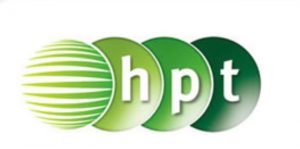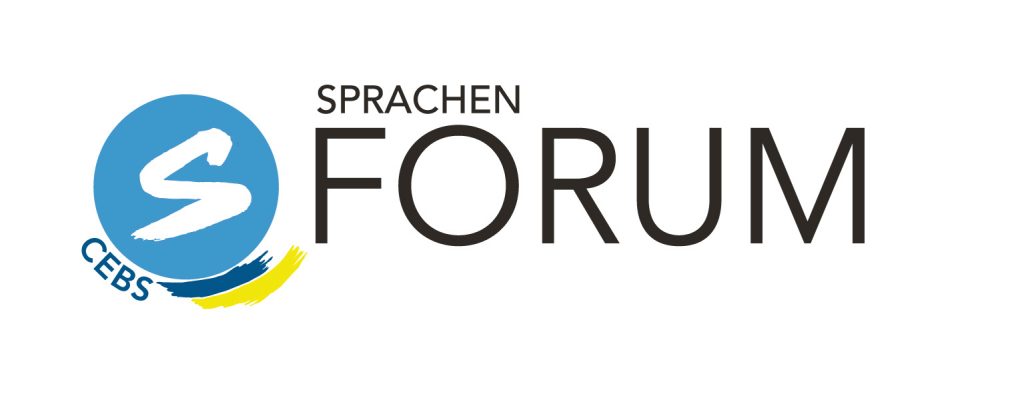
Im Rahmen unseres Kongresses hielten wir auch Rückschau auf 30 Jahre CEBS und 20 Jahre VISION.
Wir danken Helmut Renner, Belinda Steinhuber, Gerda Piribauer und Isolde Plangg-Tauschitz für die Publikation der Festschrift. Hier der Link zum Flipbook der Festschrift.
Es wird noch eine Weile dauern, bis die Bestätigungen verfügbar sind. Hier jedoch vorab schon eine Anleitung von der PHDL.
Die meisten Präsentationen sind als PDF zum Download verfügbar. Für weitere Details einfach auf den jeweiligen Namen klicken.
Bob Blume (inkl. Videoaufzeichnung)
Chia Suan Chong (inkl. Videoaufzeichnung)
Thom Kiddle (inkl. Videoaufzeichnung)
Catherine Jeanneau (inkl. Videoaufzeichnung)
Manuela Mena Octavio (inkl. Videoaufzeichnung)
Sarah Mercer (inkl. Videoaufzeichnung)
Uwe Pohl (inkl. Videoaufzeichnung)

Bob Blume ist Lehrer, Blogger, Podcaster und Bildungsinfluencer. Er studierte Germanistik, Anglistik sowie Geschichte und arbeitet nun als Oberstudienrat an einem Gymnasium in der Nähe von Baden-Baden. Daneben schreibt er Fachbücher zum Lernen im digitalen Wandel und macht in den sozialen Medien auf Bildungsthemen aufmerksam. Zudem ist Bob Blume ein gefragter Experte in der deutschen Medienlandschaft zum Thema Schule. Bei der Verleihung der Goldenen Blogger 2022 wurde er als Blogger des Jahres ausgezeichnet.
Abstract: Wenn wir über Bildung sprechen, hat jeder und jede etwas anderes im Kopf. Meist sind die Vorstellugen darüber, was Bildung – was gute Bildung – ist, geprägt von der eigenen Lerngeschichte. Das hat Vorteile, wenn diese in eine Tätigkeit gemündet ist, die einem selbst Sinn und Bedeutung gibt. Der Nachteil ist, dass der rapide Wandel unserer Welt, unserer Lebensrealität, auch die Bildung trifft und betrifft. Und dass wir zu jederzeit unsere Vorstellung darüber, was Bildung jetzt, im 21. Jahrhundert bedeutet, hinterfragen müssen.
Warum lernen wir eigentlich noch in Schulen, wenn wir doch Orts-, Zeit-, und Raumabhängig sind?
Die Antworten liegen in einem verschobenen Fokus auf das Lernen selbst, das wiederum die Sprache im Mittelpunkt der Überlegungen hat. Die Sprache als Mittler, die Sprache als Gegenstand und die Sprache als Schlüssel zum Verständnis einer immer komplexer werdenden Welt.

Sarah Mercer is Professor of Foreign Language Teaching at the University of Graz, Austria. Her research interests include all aspects of the psychology surrounding the foreign language learning experience. She is the author, co-author, and co-editor of several books in this area including. She has published over 150 book chapters and journal articles and has served as Principal Investigator on several funded research projects. In 2018, she was awarded the Robert C. Gardner Award for excellence in second language research by the International Association of Language and Social Psychology (IALSP).
Abstract: The elephant in the room refers to a major issue which everyone is acutely aware of, but people are avoiding addressing directly. I suggest this has been the case for teacher stress and wellbeing in language education. Although the situation has changed dramatically in recent years with it receiving more attention than previously, we still face a considerable problem in how it is discussed that cannot be swept under the carpet – not when elephant-sized! I outline what we know about the topic taking an ecological perspective which stresses the interaction of social contexts, policy, and leadership as well as the individual agency of teachers. I then consider what kind of concrete actions need to be taken on a structural as well as personal level to empower teachers to enable them not just to survive but to thrive in their professional lives.

Chia Suan Chong is a writer, communication skills trainer and a teacher trainer. She is the author of Successful International Communication, where she presented her ADAPT model as a framework for dealing with intercultural conflict. Delivering both online and face-to-face training to teachers and learners around the globe, Chia specializes in interactive workshops that encourage reflection for more effective international communication and improved collaboration. Currently based in York, Chia was English Teaching Professional’s award-winning resident blogger between 2012 and 2019. She developed and co-wrote the Pearson ELTD – an online teacher training course, has contributed extensively to the British Council Learn English website and holds a DELTA and a Masters in Applied Linguistics and ELT. Chia is a co-author for VOICES, an integrated series by National Geographic Learning for adult learners of English.
Abstract: We might teach our students to make meaning with words, but do we help them communicate effectively with people from different cultures? Do we prepare them for situations where they are faced with unexpected behaviour and communication styles? In this interactive session, we will consider the role culture plays in our interactions and explore the ways how we can manage this complex and fluid social force. We’ll consider some engaging practical ideas using critical incidents and roleplays that encouraging self-reflection and awareness in our students and explore how my ADAPT model can be used to help us be more flexible and manage diversity.
Abstract: For many students, English is a tool for international communication. Students will need to mediate interactions with people from different cultural backgrounds, while accommodating, adapting and accurately interpreting other people, all in a 2nd language. But, how much ownership do they feel of English? How confident do they feel about speaking up in a group setting? Are they able to express their identity in a conflict situation? This talk explores the importance of helping students develop their relationship with English, and considers the strategies and the practical activities we can use to help students make English their own.

Thom Kiddle is Director at NILE (Norwich Institute for Language Education), where he has worked since 2011. He has previously worked in Chile, where he was head of academic research and educational technology at the Chilean-British University, and in Portugal, the UK, Australia and Thailand in language teaching, teacher training and language assessment. He has a Master’s degree in Language Testing from Lancaster University and the Cambridge Delta, and his role at NILE involves strategic and organisational management, and training and consultancy in a range of areas including testing and assessment, learning technologies, materials development and language teaching methodology. Thom is also Chair of the Eaquals Board of Trustees; treasurer and a founding director of AQUEDUTO – the Association for Quality Education and Training Online; and a member of the British Council English Language Advisory Group. He has published in Applied Linguistics, Language Assessment Quarterly, System; in 2019, two chapters in Routledge Handbooks of Language Teacher Education; and has two forthcoming publications on Quality Assurance and Digital Language Teaching Materials in 2023. Thom was also a plenary speaker at IATEFL 2021.
Abstract: This presentation will look at the professional competences teachers will need in the face-to-face, virtual (and hybrid?) classroom as the decade progresses, and the implications for initial teacher education and in-service teacher development. We will consider the role of language change and language choices, content and language integration, digital technologies, remote learning and Artificial Intelligence, teachers’ assessment principles and practices, and awareness of the learning environment. These are all potential areas for effective teacher development, and may empower teachers to deal with the challenges of this exceptional decade. The invitation is to consider these competences in the light of the upheaval in teaching and learning which we have all experienced over the first years of the 2020s, alongside the undercurrent of developments in Artificial Intelligence applied to language education, and to examine how teachers may need to reframe and refocus their role. This choice of areas of focus in this talk is not intended to be exhaustive, nor inflexible, but rather a reflection on trends which have been emerging over some time, and are thrown into stark relief by current realities and discussions of possible futures.
Abstract: This workshop will focus on the concept of mediation, as proposed and developed in the Companion Volume to the CEFR (2020) and its implications for classroom practice in language teaching and learning, specifically in the integration of language skills for communicative, action-oriented language use. We will explore the understandable temptation for classroom work on integrated skills to be devoted to teacher-facilitation of opportunities for student language practice, and examine where the actual teaching of language features in such an approach. Through hands-on experimentation with texts, activities and tasks, we will attempt to centre the text as the vehicle for development of mediation competences, and how this may enable us to include a language focus within integrated-skills lessons.

Uwe Pohl is a German-born teacher educator in the Department of English Language Pedagogy at Eötvös Loránd University, Budapest in Hungary. He is a senior lecturer in language pedagogy and applied linguistics with a particular interest in the areas of ELT methodology, English as Medium of Instruction, intercultural communication, mentoring and trainer training. Uwe Pohl teaches in the BA, MA and PhD programmes of the School of English and American Studies and is currently the Dean’s faculty commissioner for international students.
Apart from teaching and lecturing in a variety of subjects, his regular work includes academic consultancy to BA and MA students who write their graduating theses. He also regularly provides on-site support for teacher trainees during their school practicum and runs training courses for school-based mentors of beginning teachers of English.
Uwe Pohl has also worked in a wide variety of international education contexts doing in-service workshops, training courses and consultancies in Europe (British Council), the U.S. (School for International Training, VT) and Ethiopia (Ministry of Education/Council of Europe). Most recently, he has delivered training on behalf of the British Council for EMI projects in China at Southwest Jiaotong University, Chengdu, Guangdong University of Foreign Studies, South China University of Science and Technology, Kunming University of Science and Technology and Capital University of Economics and Business, Beijing.
Abstract: I have been working in pre-service teacher education for many years now. All along, the question of what teacher development means and how English teachers become better at what they do has been both professionally and personally intriguing. So what is it that takes teachers forward in their understanding of themselves as professionals, the teaching/learning process and the ability to teach English?
A number of models conceptualise such development as a lengthy process that systematically unfolds over time. Some stress the importance of experience to gain expertise. Others identify predictable stages from novice to expert or frame teacher development as a series of professional life cycles. Other models see ‘newbie teachers’ progress from the periphery towards the core of a community of knowledgeable and skilled practitioners. All these conceptualisations are useful in capturing the psychological, social and professional complexity of teacher development. Yet I have always felt that they do not tell the whole story.
In this perspective, teachers develop very much in the way trees grow, i.e. in a less predictable, more interconnected and holistic fashion. This talk will be a personal exploration of this analogy and the factors that, taken together, I see as contributing to teacher development.
Abstract: In the language classroom, engagement is a key condition for learning to happen. How to get and keep our learners engaged – with the teacher or each other – is also a real challenge. It requires a mode of working which captures students’ attention, thinking and feeling. In my teaching I have found that there are a number of work mode ‘blueprints’ for successful engaging students. All of them require some form of interaction and encourage different kinds of student response. In this workshop, you will experience a selection of such work modes so we can explore what makes them effective in providing a framework for student engagement.

Directeur général du CAVILAM – Alliance française de 1997 à 2022, Michel BOIRON a participé à la conception et à la réalisation de nombreux projets pédagogiques en particulier avec la chaine internationale francophone TV5MONDE, RFI ou encore en partenariat avec l’Institut français ou l’Organisation internationale de la Francophonie. Ses pôles d’intérêt privilégiés sont la réflexion sur la motivation à l’apprentissage, les stratégies de compréhension et d’expression et l’utilisation de documents culturels en classe de français (littérature, art, cinéma, bande dessinée, chanson, etc.).
Spécialisé dans la formation d’enseignants et de personnel d’encadrement, il assure des missions de formation et d’expertise dans le monde entier.
Chevalier de la Légion d’honneur / Chevalier des Arts et des lettres
Abstract: Activités pour la classe de français tous niveaux
Dans cet atelier, nous explorerons une série d’activités pour la classe de français à tous niveaux à partir de la thématique des jeux olympiques, du français et du sport. Nous partagerons des idées qui pourront aller d’une séquence de cours isolée à un projet de classe ambitieux. L’objet est d’aborder les thématiques du français, de la francophonie et du sport en mettant en lumière les valeurs de l’olympisme, les disciplines sportives et les athlètes femmes et hommes qui se dépassent pour accéder aux jeux et réaliser la meilleure performance possible en compétition.
Abstract: Comment éviter le burn-out quand on est prof de FLE ?
Comment gérer le stress et gérer le quotidien ? Comment développer son bien-être et entretenir sa propre motivation et celle des élèves ?
Cette conférence interactive propose une réflexion sur le travail d’enseignant, l’équilibre entre vie personnelle et vie professionnelle et des stratégies à la portée de tous pour éviter le stress, l’épuisement et le burnout.
L’atelier propose également un ensemble d’activités simples qui seront immédiatement utilisables en classe de français dès le niveau A2.
Abstract: Comment faire pour que les élèves se sentent intelligents ?
Au-delà de l’apprentissage des connaissances langagières, dans cette approche, la classe de langue devient le lieu privilégié pour développer des compétences transversales importantes comme la capacité à communiquer, à travailler en équipe, à analyser des situations, à résoudre des énigmes, à relever des défis et à développer la créativité.
Nous explorerons différentes pistes pédagogiques concrètes pour associer à l’apprentissage du français d’autres compétences et aptitudes comme le sens de l’observation, le raisonnement, la logique et plus largement l’aptitude à analyser et comprendre des situations et à résoudre des problèmes.

Joanna Paolinelli è la direttrice generale della British School Pisa Srl. È particolarmente interessata a utilizzare la sua esperienza, la tecnologia e nuove idee per garantire che l’apprendimento e l’insegnamento dell’inglese siano accessibili a tutti. Il suo metodo di insegnamento combina la tecnologia digitale e metodologie innovative per rendere la classe un luogo in cui tutti possono imparare. Joanna ha una laurea magistrale in metodi di ricerca psicologica, un master in psicologia dell’educazione ed è anche un tutor qualificato dell’Associazione Italiana Dislessia (AID). È formatrice per insegnanti e relatrice sull’insegnamento inclusivo. Collabora regolarmente con case editrici e commissioni esaminatrici sui problemi che la dislessia può causare nell’apprendimento delle lingue. Joanna divide il suo tempo tra il lavoro con bambini con bisogni speciali, la formazione degli insegnanti nella sua scuola e i viaggi in tutta Italia per lavorare con insegnanti di scuole statali italiani sulle metodologie didattiche e gli studenti con dislessia. Le sue sessioni di formazione su innovazioni e metodologie mirano a rendere l’istruzione più inclusiva, flessibile ed emozionante.
Mitschrift (durch AI sembly erarbeitet)
Abstract: In qualità di insegnante, comprendo l’importanza cruciale di stare al passo con gli strumenti tecnologici più recenti per arricchire l’esperienza educativa e garantire l’inclusività delle mie lezioni. L’eccezionale progresso raggiunto dall’Intelligenza Artificiale è stato ampiamente dimostrato da ChatGPT, evidenziando le sue capacità straordinarie.In questo Con workshop dimostrerò come questa tecnologia all’avanguardia possa rivoluzionare l’approccio didattico, promuovendo al contempo l’inclusione. Condividerò pratici consigli, esercizi e suggerimenti su come integrarla in aula, dimostrando come l’Intelligenza Artificiale non solo può potenziare l’apprendimento linguistico degli studenti, ma anche semplificare la vita dell’insegnante, promuovendo una piattaforma educativa più accessibile a tutti.
Abstract: Credo che non si debba insegnare, ma creare un ambiente coinvolgente e inclusivo in cui tutti gli studenti possano imparare. Questo principio deriva dall’approccio umanistico all’apprendimento e dall’idea che il ruolo dell’insegnante sia quello di essere un facilitatore e un modello, con l’obiettivo di aumentare la motivazione intrinseca e l'“eccitazione“ in classe. La teoria umanistica dell’apprendimento è stata sviluppata da Abraham Maslow, Carl Rogers e James F. T. Bugental nei primi anni del 1900. Tuttavia, molti dei principi di questo approccio sono ancora oggi scientificamente rilevanti, poiché la comprensione dei nostri studenti è la chiave per un insegnamento di successo, duraturo e d’impatto. Discuterò di come l’approccio umanistico all’apprendimento delle lingue, secondo la mia esperienza, non solo migliora le competenze linguistiche, ma aiuta anche a sviluppare negli studenti atteggiamenti emotivamente positivi. Mostrerò anche metodologie come l’apprendimento basato su progetti, l’apprendimento basato su compiti e le nuove tecnologie come la realtà virtuale possano essere utilizzate come strumento metacognitivo che rafforza l’idea di imparare facendo. Coinvolgendo gli studenti in esperienze pratiche e di riflessione, essi sono maggiormente in grado di collegare le teorie e le conoscenze apprese in classe alle situazioni del mondo reale.
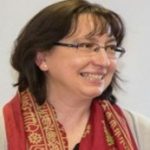
Carmen Sanjulián es profesora de español de los negocios en Trinity College Dublin.
Le interesa de manera especial el desarrollo del componente intercultural en la clase de ELE/ENE. Desde hace algunos años crea ejercicios “Sentipensantes” que quieren ayudar a fomentar una conciencia crítica sobre cómo la relación e interacción entre la economía, la política y la sociedad favorece o dificulta el desarrollo de una sociedad plural e intercultural.
En abril de 2021 recibió el premio ´Teaching Hero Award´, que organiza el Teaching National forum, junto con la unión de estudiantes de educación superior en Irlanda y que reconoce la dedicación de los premiados y su capacidad de cambio.
Abstract: Decía Gandhi que las tres cuartas partes de las miserias y malentendidos en el mundo terminarían si las personas se pusieran en los zapatos de sus adversarios y entendieran su punto de vista. Parece fácil pero no lo es. Para hacerlo es necesario reflexionar y repensar los marcos de conocimiento desde los que sentimos, vemos y actuamos y de los que muchas veces no somos conscientes. Es una tarea llena de obstáculos que se complica aún más cuando los prejuicios, sesgos cognitivos o estereotipos se interponen en nuestro camino. El taller ofrece una serie de ejercicios prácticos para la clase de ELE que quieren facilitar percibir, sentir, reflexionar y, ojalá, entender qué sucede cuando nos ponemos otros zapatos. El objetivo final es desarrollar y mejorar nuestra empatía, elemento imprescindible para facilitar la apertura a diferentes valores y comportamientos y herramienta importantísima, pero pocas veces mencionada, para conseguir una sociedad verdaderamente intercultural.
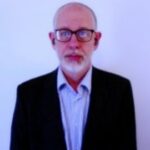
Nik Peachey is Director of Pedagogy at PeacheyPublications, an independent digital publishing and consultancy company that specialises in the design of digital learning materials. He has been involved in education since 1990 as a teacher, trainer, educational consultant and project manager. He has more than 25 years’ experience of working specifically with online, remote and blended learning environments.
Abstract: Creativity is not only an essential feature of language use but it will be a key skill for employability over the coming decade. With classrooms moving progressively towards more online delivery how can we ensure that we don’t lose one of the most fulfilling and engaging aspects of learning?
In this session I will share a range of techniques and activities that will enable teachers to add a creative element to their teaching, whether it’s online or face to face. We will also look more closely at how we can help our students develop their creative thinking and problem-solving skills by looking more carefully at the creative process and how we apply different types of thinking.
By the end of this session, you should have a better idea of how creativity works as well as a collection of activities you can use with your students to stimulate their creativity and add another dimension to their language learning, whether it’s online or face to face.

Manuela Mena es licenciada en Traducción e Interpretación (UCM), Máster en Neuropsicología (UNIR), poseedora del Certificate in English Language Teaching to Adults (CELTA) de Cambridge y Experta en Docencia Online por la UNIR.
Actualmente dirige la consultora educativa www.feelthelanguage y la escuela de idiomas The Language House de Campo de Criptana. Junto con las labores propias de dirección, Manuela imparte clases en el Máster de Didáctica del español de la Universidad de Nebrija y en el Máster Internacional para Profesores en la Universidad de Lenguas Aplicadas del Múnich (SDI).
Recientemente ha sido galardonada con un accésit en los premios nacionales de investigación promovidos CEF-UDIMA por su trabajo sobre Design Thinking, empatía y enseñanza en línea.
Asimismo, Manuela diseña material didáctico y libros de texto para diversas editoriales y blogs de difusión sobre la enseñanza y el aprendizaje del inglés como lengua extranjera.
Abstract: ¿Quién no se ha interesado alguna vez por productos o rituales de belleza para lucir una piel o un aspecto más joven? Y es que, la búsqueda del elixir de la eterna juventud es inherente a la condición humana.
Pero, ¿nos interesamos de la misma manera por nuestra juventud cognitiva? ¿Sabemos cómo cuidar y mimar nuestra mente a diario para mejorar nuestra reserva cognitiva o incrementar nuestra creatividad y capacidad atencional?
En esta ponencia se mostrarán estrategias que podemos implementar en nuestro día a día a fin de mejorar la memoria, la capacidad de aprendizaje, la atención, la capacidad creativa y el rendimiento cognitivo en general. Asimismo, se discutirían los factores que afectan a la salud cognitiva, incluyendo la actividad física, la dieta, la higiene del sueño o el manejo del estrés.
También se discutirían las últimas investigaciones sobre la neuroplasticidad y la capacidad del cerebro para reconfigurarse a partir de sencillas técnicas y actividades que pueden llevarse a cabo en nuestro lugar de trabajo.
Abstract: La inteligencia artificial (IA) desempeña un papel cada vez más relevante en nuestras vidas. En el campo educativo, la IA viene pisando fuerte y ya ha empezado a revolucionar las aulas. Si bien el potencial de apoyo que ofrece la IA al proceso de enseñanza-aprendizaje es considerable, aún existen lagunas en nuestra comprensión sobre las innumerables posibilidades que puede ofrecernos esta tecnología. En este taller vamos a analizar algunos de los recursos actuales a nuestra disposición que podrían aplicarse en el aula de lengua extranjera a fin de ayudar a nuestros estudiantes a desarrollar la competencia comunicativa en L2 de manera integral, al tiempo que se trabajan otras competencias fundamentales, como la digital, la creatividad o el pensamiento crítico. Asimismo, se presentarán ejemplos concretos de cómo emplear algunas de estas herramientas para facilitarle el trabajo al docente, ayudarle a desarrollar su competencia digital docente y facilitarle el proceso de reskilling y upskilling.
Para finalizar, se reflexionará desde una perspectiva crítica, sobre cuáles deberían ser los instrumentos y procesos de evaluación más indicados para el aula de lengua extranjera en un panorama marcado por la fuerte presencia de la IA y los chatbots.

Ian McMaster is a business communication consultant, author and journalist. He was editor-in-chief of Business Spotlight magazine from March 2001 until November 2021 and is a former coordinator of IATEFL BESIG. His publications include Effective International Business Communication and Communication for International Business (both with Bob Dignen, Harper Collins).
Abstract: Successful business communication is difficult for one simple reason — because interpersonal communication in general is difficult. In this workshop, we will look at 007 (relatively) simple strategies that can help your learners/students/clients to communicate more successfully. We will also co-create classroom activities to practise these strategies.
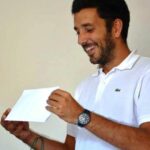
Ho conseguito la Laurea magistrale in Filosofia nel 2011. Appena terminati gli studi ho capito che il mio futuro sarebbe stato nel mondo dell’insegnamento. Quando, ho iniziato a dare lezioni private di italiano a stranieri, ho trovato l’attività molto affascinante. Per questo motivo, ho deciso di iscrivermi a un Master per l’insegnamento dell’italiano a stranieri presso l’Università di Urbino. Dal momento in cui ho iniziato a frequentare il Master, ho subito capito che era la scelta giusta. Durante i miei studi, ho avuto l’opportunità di lavorare come insegnante. Ho insegnato in classi di studenti richiedenti asilo, giovani immigrati che si sono trasferiti in Italia con le loro famiglie, cantanti lirici e studenti stranieri che vengono in Italia per migliorare il loro italiano. La mia motivazione e la mia passione crescevano ogni giorno. Terminato il Master in Didattica della lingua italiana a stranieri, ho approfondito la mia preparazione conseguendo la certificazione Ditals. Da quel momento in poi, non ho mai smesso di insegnare italiano, soprattutto nei corsi organizzati dalla Scuola Italiana di Mondavio. La scuola offre corsi di lingua e cultura italiana per studenti stranieri di qualsiasi età, provenienti da qualsiasi paese. La scuola si trova nello storico „borgo“ di Mondavio, un luogo incantevole dove imparare l’italiano e scoprire i ritmi quotidiani di una bellissima città. Inoltre, la Scuola organizza corsi di formazione per insegnanti di italiano. Mi piace l’idea di insegnare e condividere la mia esperienza con altri insegnanti di tutto il mondo. I nostri punti di forza sono la didattica ludica e il potenziamento delle abilità orali. Ora sono il responsabile della formazione per la Scuola di italiano di Mondavio. Offriamo molte attività per insegnanti di italiano come seconda lingua. Condividiamo tutte le risorse che abbiamo creato e sono felice di viaggiare in tutto il mondo per incontrare e conoscere nuovi insegnanti.
Abstract: Il workshop prevede una prima fase nella quale verranno forniti suggerimenti pratici e idee per insegnare l’italiano con le canzoni. Successivamente, gli insegnanti saranno guidati nella creazione di unità didattiche utilizzando canzoni di Sanremo 2023. L’obiettivo del workshop è mostrare il ruolo che la musica può avere nell’apprendimento, favorendo il coinvolgimento emotivo dello studente.
Abstract: La dimensione ludica ha un ruolo fondamentale nell’insegnamento delle lingue straniere. Durante il workshop, verranno condivisi esempi pratici per favorire l’apprendimento dell’italiano con attività motivanti e divertenti. Le attività proposte verranno sperimentate direttamente dagli insegnanti per riflettere sull’importanza del gioco nello sviluppo delle competenze di produzione orale. Infatti, attraverso il gioco, si crea una situazione di apprendimento ideale per lo sviluppo delle competenze più complesse.

Antonia Clare is an English language teacher trainer, international conference speaker and author. Her special interests include the psychology of language learning, creativity and art. She has taught and trained in many countries around the world, and co-authored bestselling course book titles including Total English and Speakout and Teachers’ Resource titles such as The Creative Teacher’s Compendium. She is a freelance writer and a consultant trainer with NILE, and is currently working on a book about Positive Language Education with Sarah Mercer and Tammy Gregerson.
Abstract: As humans, our relationships are important and we thrive when we feel a sense of connection in our daily lives. In education, connection extends beyond this idea of social connectedness to include the deep connections required to make learning effective. However, it can be hard to form these deeper connections in today’s world and lack of genuine connection within our work can lead to teacher burnout. This talk will look at the importance of deep connection in learning environments and offer some ideas and techniques we can use to maximise our own and our learners’ sense of connectedness.
Abstract: How can we be more creative in the classroom, especially when under increasing pressure to meet the demands of standardised curricula and testing? Does creativity require a small act of defiance or rebellion on the part of the teacher? This workshop will offer practical ideas from the Creative Teacher’s Compendium to help you become that flamingo in your teaching.
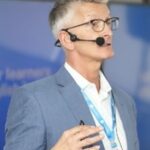
Mike Mayor is Senior Director, Global Scale of English at Pearson. On leaving university, Mike worked as a teacher of English in France before entering the world of publishing as a lexicographer. Mike joined Pearson in 2003 and headed up the Longman dictionaries list until his move to the Global Scale of English in 2013. In this role, Mike works with coursebook and assessment teams to ensure that the Global Scale of English underpins all elements of the Pearson Connected English Learning Programme. Mike has a BA (Hons) in French Language and Literature and a Masters in English and Applied Linguistics from Cambridge University.
Abstract: In 2017, Pearson partnered with Nesta and Oxford Martin School to explore the skills that employers would be looking for in 2030. At that time, much was being made about the impact of technology and automation on jobs, and research indicated a disconnect between the opinion of chief academic officers, who felt they were preparing their students for the workplace, and employers who were struggling to find candidates with the right skill set. The global pandemic has, if anything, accelerated changes in the job market and the future seems more uncertain than ever. What is it then that we as educators can do to prepare our learners for such uncertainties? What are the skills that will make them employable in 2030 and beyond? This presentation explores the issues within the context of Pearson’s Employability Framework and introduces the Skill Development Frameworks that have been developed with experts from around the world to help identify increasing mastery of these future skills.

Est responsable d’un centre dédié à l’apprentissage des langues à l’Université de Limerick, Irlande. Ce centre vise à mettre en œuvre une stratégie de soutien et d’autonomisation des apprenants et à fournir des services d’apprentissage des langues innovants en dehors des heures de cours formelles pour un public varié. Catherine Jeanneau a une vaste expérience des nouvelles technologies et de l’apprentissage en autonomie. Elle a participé à différents projets nationaux et européens dans ces domaines et organise des formations sur le numérique pour les enseignants/formateurs en langues. Elle mène des recherches et a également publié sur ce sujet.
Abstract: La classe de langue offre de nombreuses possibilités pour permettre aux apprenants de développer leur littératie numérique et d’agir en tant que citoyens numériques, ce qui entre dans le cadre des objectifs promus par les grandes organisations internationales intervenant dans le domaine éducatif, notamment le Conseil de l’Europe (Caws et al., 2021; Ollivier et al., 2021).
Au cours de cette session, nous examinerons d’abord ces opportunités et passerons en revue certaines recherches dans ce domaine pour essayer d’établir ce que signifient la littératie numérique et la citoyenneté numérique, particulièrement dans le contexte de l’enseignement et de l’apprentissage des langues.
Nous ouvrirons ensuite des pistes didactiques concrètes pour la mise en œuvre de ces objectifs à travers une approche socio-interactionnelle fondée sur la réalisation de tâches ancrées dans la vie réelle permettant aux apprenants de faire l’expérience de la communication authentique et de l’action citoyenne au-delà des murs de la classe.
Nous présenterons enfin brièvement ces tâches qui permettent aux apprenants de devenir des utilisateurs de langues et d’adopter une nouvelle posture dépassant celle d’apprenants et nous réfléchirons aux compétences qu’elles requièrent.
Abstract: Dans cet atelier, nous explorerons des pistes pour la mise en œuvre de la sensibilisation à la citoyenneté numérique dans l’enseignement des langues à travers des tâches numériques. En nous basant sur le travail effectué par deux projets (e-lang citizen, un projet mené au Centre européen pour les langues vivantes, https://www.ecml.at/elangcitizen, et un projet Erasmus+, Lingu@num, http://www.linguanum.eu), nous présenterons ce que nous appelons des „tâches ancrées dans la vie réelle“ et partagerons divers exemples de ces tâches. Nous montrerons comment elles peuvent être réalisées par les apprenants en dehors de l’environnement de la classe sur des sites participatifs ouverts, tels que des guides de voyage (WikiVoyage), des encyclopédies en ligne (Wikipedia), des forums (Reddit), des catalogues de livres audio (Librivox), etc.
Nous discuterons de la manière dont ces tâches peuvent être mises en œuvre dans divers contextes éducatifs pour amener les apprenants à faire l’expérience d’une communication authentique et à s’engager dans des actions sociales en tant que citoyens au-delà des murs de la classe. Nous examinerons enfin comment les apprenants peuvent développer à la fois leurs compétences linguistiques et leur citoyenneté/littératie numériques en réalisant ces tâches et comment ces tâches leur permettent de mener une réflexion sur les/leurs comportements en ligne.
À la fin de l’atelier, les participants auront appris à développer et à mettre en œuvre des tâches ancrées dans la vie réelle adaptées à leur propre contexte d’enseignement.

Gisella Langé, Ispettrice Tecnica di Lingue Straniere del Ministero dell’Istruzione, è responsabile di progetti italiani ed europei finalizzati all’internazionalizzazione e all’innovazione linguistica e interculturale.
Ѐ membro di vari Gruppi di lavoro e Commissioni ministeriali per le Indicazioni nazionali, lo sviluppo della metodologia CLIL, la certificazione delle competenze linguistiche, la formazione docenti. Ha progettato e coordinato programmi televisivi RAI (la Rete di Stato) per sette lingue straniere. Ѐ presidente del Comitato Nazionale per la valutazione delle candidature CertiLingua, il Label europeo di eccellenza che attesta le competenze plurilingui e interculturali degli studenti.
In qualità di esperta presso la Commissione Europea e il Consiglio d’Europa, ha partecipato a numerosi gruppi di ricerca (Apprendimento precoce delle lingue, Portofolio Europeo delle lingue, Profilo delle politiche linguistiche, Autobiografia per gli incontri interculturali, …) e alla progettazione di percorsi plurilingui di sviluppo professionale per docenti in presenza e online. Ha svolto funzioni di esperta per la definizione del Foreign Language Assessment Framework design per l’indagine OECD/PISA del 2025 e per la pubblicazione Key Data on Teaching Languages at School in Europe di Eurydice.
Gli ambiti nei quali sta svolgendo attualmente attività di ricerca e formazione riguardano l’Apprendimento Integrato di Lingua e Contenuti (CLIL), l’educazione interculturale, il plurilinguismo, la certificazione delle competenze linguistiche, la verticalizzazione e l’internazionalizzazione dei curricoli.
Ha pubblicato vari testi in ambito di politiche e sviluppo di curricoli linguistici, educazione plurilingue ed interculturale, certificazione delle competenze linguistiche, metodologia CLIL.
Abstract: Come migliorare l’apprendimento delle lingue con approcci e metodologie che attivano pratiche favorevoli al plurilinguismo e valorizzano i repertori linguistici dei cittadini europei?
Utile appare analizzare rapidamente tre documenti europei:
Allo scopo di rendere operative le indicazioni europee, grazie ad un accordo con l’Università di Toronto, che ha offerto competenze e risorse pedagogiche online, il Ministero dell’Istruzione italiano ha attivati vari progetti in scuole delle regioni Campania, Lazio e Lombardia.
La formazione di Team Leaders ha permesso di guidare più di 250 insegnanti nella produzione di “scenari plurilingui” nelle loro classi. Verranno descritte le varie fasi e i prodotti dei progetti, con particolare riferimento alle modalità con le quali è stata attivata la formazione “a cascata” di formatori e docenti creando positive dinamiche interregionali e internazionali.
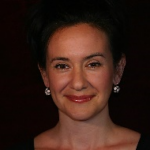
Josefina Vázquez Arco es doctora cum laude en Filología Hispánica por la Universidad Complutense de Madrid. Desde el año 2000 trabaja como profesora en el Departamento de Lenguas Románicas de la Universidad de Salzburgo. Además, imparte clases en el Curso de Cinematografía de la Universidad de Valladolid y colabora en el programa de Doctorado de la Universidad Internacional de La Rioja con un módulo dedicado a la imagen de los docentes en el cine. Ha impartido numerosos seminarios de formación del profesorado en Austria, Alemania y Hungría. Ha colaborado en diferentes publicaciones de E/LE y es coautora de Caminos Austria 3: Schularbeiten mit CD/CD-ROM y del manual Descubramos el español. Spanisch interlingual.
Abstract: ¿Es posible mantener el nivel de motivación de los primeros años de docencia? ¿Qué estrategias puede desarrollar el personal docente para que aspectos como la rutina o el carácter repetitivo de la enseñanza de idiomas no mermen su vocación? A estas y otras preguntas relacionadas con el tema estará dedicada esta conferencia.
Abstract: En este taller se presentarán distintos formatos de actividades destinadas a reforzar la autoestima y motivación del alumnado. Se verán ejemplos prácticos de ejercicios que ayudarán a los/las alumnos/as a superar el miedo a hablar en público y a cometer errores.
Was sind die didaktischen und moralischen Implikationen Künstlicher Intelligenzen beim Sprachenlernen und -lehren? Thomas Strasser wird einen Überblick darüber geben, wie auf Künstlicher Intelligenz basierende Systeme im Sprachunterricht eingesetzt werden können. Es werden eine Reihe von sogenannten schwachen KI-Systemen und -Anwendungen vorgestellt (u.a. auch Chat-GPT), die auf spezifische Sprachlehr- und -lernszenarien angewendet werden können. Weiters wird die aktuellste Forschung im Bereich KI und Sprachlernprozesse vorgestellt, um folgende Fragen zu diskutieren:

www.bildungshipster.online
Professor für Fremdsprachendidaktik und technologieunterstütztes Lehren und Lernen an der Pädagogischen Hochschule Wien. Medienpädagoge, Fachdidaktiker, Sprachlehrer, Lehrer*innenfortbildner, (Schul)buchautor, internationaler Vortragender (in mehr als 30 Ländern). Thomas Strasser ist internationaler Reviewer für wissenschaftliche Journals und für die Europäische Kommission, z.B. für Horizon2020. Er ist wissenschaftlicher Gutachter und Berater für verschiedene internationale Bildungseinrichtungen, vor allem im Bereich Digitalisierung und Lernen/Lehren. Seine zahlreichen Publikationen sind unter anderem Methodikbücher wie Mind the App & Mind the App 2.0, Englischschulbücher für die Sekundarstufe bzw. über 50 wissenschaftliche Publikationen für Springer, Routledge, etc. Thomas ist Mitglied des Fulbright Auswahlkomitees für das Foreign Language Teaching Assistantship Program. Thomas arbeitete als Gastprofessor und Gastwissenschafter an der Leuphana Universität Lüneburg im Bereich Mobile-Assisted Language Learning/Game-Based Learning). Glühender BVB-Fan und (Ultra-)Marathon-, Trailläufer, Rennradfahrer & Tennisspieler.
Die Teilnehmenden werden per Email von Belinda Steinhuber via PH-Online über Aktuelles informiert.
Bei Fragen bitte an cebs@cebs.at wenden.
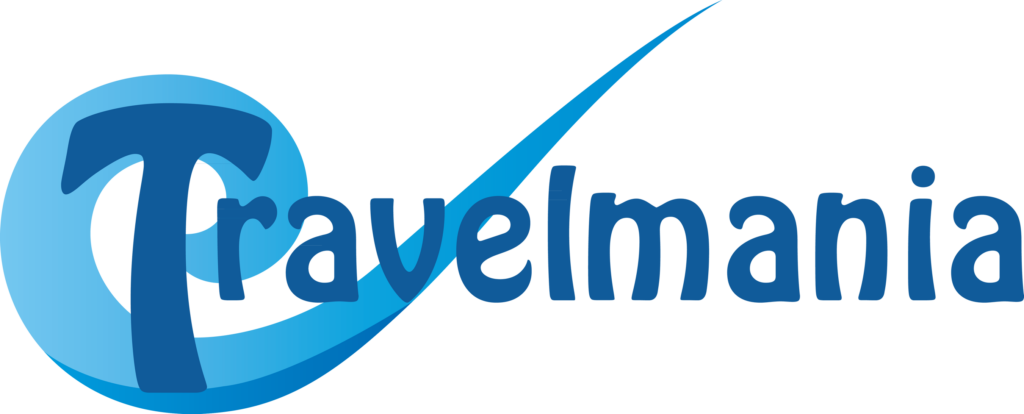
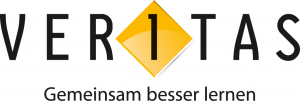
![Eaquals Small[38]](https://www.cebs.at/wp-content/uploads/2023/02/Eaquals-Small38-300x151.jpg)
